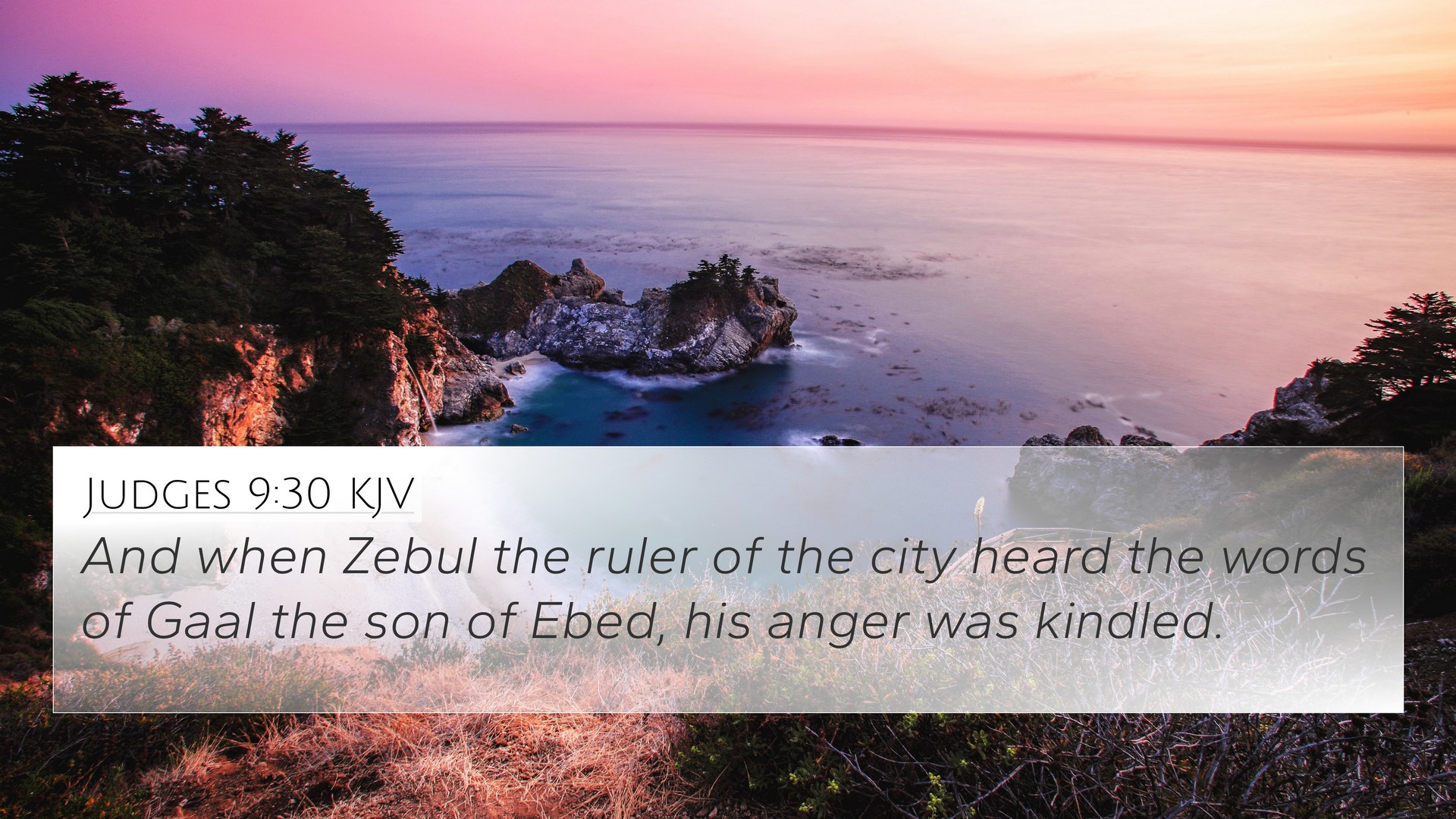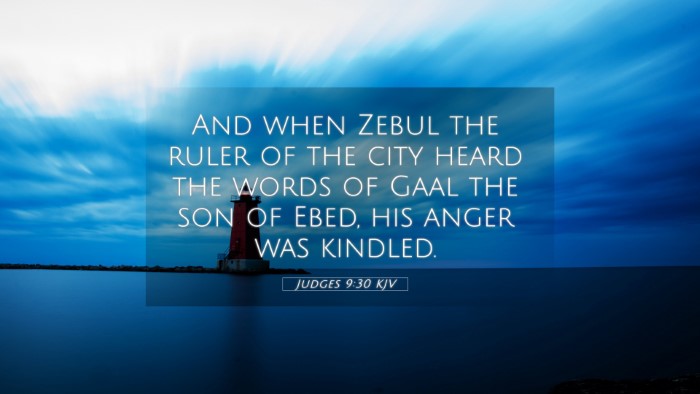Bible Verse Analysis: Judges 9:30
Judges 9:30: "And when Zebul the ruler of the city heard the words of Gaal the son of Ebed, his anger was kindled." This passage depicts the rising tension in the leadership of Shechem, showcasing both the political machinations and the emotional responses that marked this period in the history of Israel.
Contextual Overview
This verse is situated within a larger narrative about Abimelech, the son of Gideon, and the strife for power after Gideon's death. The tension arises as Gaal challenges Abimelech's authority, leading to a conflict that reflects broader themes of leadership, loyalty, and betrayal.
Thematic Insights
- Leadership and Authority: The anger of Zebul highlights the reactions of those in power when confronted with opposition. Zebul’s response can be seen as an archetype of human leadership—feeling threatened by dissent.
- Conflict and Betrayal: The rise of Gaal as a challenger to Abimelech illustrates the instability that often accompanies political leadership in the Bible, suggesting that authority is sometimes met with discontent among the people.
- Emotional Responses: Zebul’s anger acts as a significant emotional undercurrent, showcasing the human experience of feeling threatened and the need to protect one’s position.
Bible Cross-References
Judges 9:30 is connected to several other scriptures that provide deeper insights into its themes:
- Judges 9:1-6: The rise of Abimelech and the initial support from Shechem demonstrates the backdrop of Zebul's anger.
- Judges 9:21: Gaal speaks against Abimelech, which sets the stage for Zebul's response, emphasizing the theme of rebellion against leadership.
- 2 Samuel 15:10: This verse records another instance of uprising against established authority, paralleling the themes in Judges.
- 1 Kings 12:16-20: The division of the kingdom mirrors the conflict seen in Judges 9, emphasizing the fractious nature of leadership dynamics.
- Jeremiah 13:15-17: The idea of loyalty and rebellion is echoed, as the prophet warns of impending judgment linked to disloyalty to God’s appointed leaders.
- Matthew 18:15-17: Jesus' instructions for addressing conflict among believers provide a New Testament perspective on dealing with dissent within a community.
- Philippians 2:3-4: Paul’s encouragement towards humility contrasts with the prideful ambitions seen in Judges, drawing a line between God-honoring leadership and self-serving power plays.
Interpretative Reflections
Understanding Judges 9:30 requires us to consider the broader narrative of conflict in leadership. As Zebul reacts to Gaal, we are reminded of the volatile nature of human authority and the various responses it can evoke. Public domain commentaries enrich this understanding.
- Matthew Henry: He emphasizes the folly and ambition of Gaal, suggesting that his rebellion only quickens Zebul's resolve to defend Abimelech.
- Albert Barnes: Barnes provides insight into the dangerous local politics of Shechem, illustrating how local rivalries affect broader national events.
- Adam Clarke: Clark highlights the personal motivations behind Zebul's actions, showing how fear drives leaders to aggressive postures against rivals.
Tools for Cross-Referencing and Further Study
For those seeking to deepen their understanding of Judges 9:30 and other related texts, the following tools can be invaluable:
- Bible Concordance: Use a concordance to locate key themes and words within the scriptures.
- Bible Cross-Reference Guide: This can help readers identify relationships across books and chapters.
- Cross-Reference Bible Study: Engaging in study methods that focus on thematic connections enhances comprehension of scriptural dialogues.
- Bible Reference Resources: Numerous online databases provide extensive cross-referencing between verses, allowing for comprehensive thematic study.
Conclusion
Judges 9:30 serves as a poignant reminder of the complexities inherent in leadership and authority in biblical narratives. By examining this verse alongside relevant cross-references, we gain a fuller understanding of the tensions that define the human experience within divine plans. Through comparative analysis and consideration of accompanying scriptures, we also uncover broader spiritual truths that continue to resonate in our lives today.


